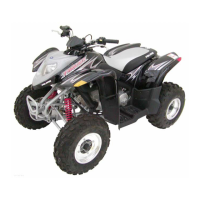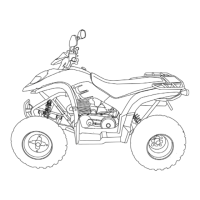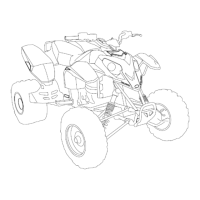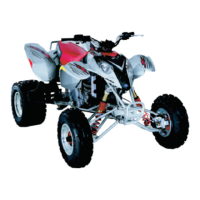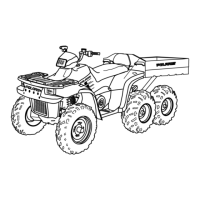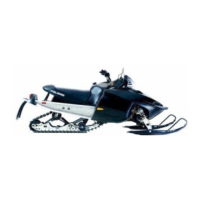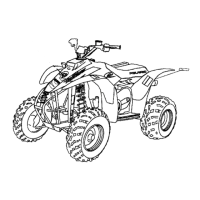SPARK PLUG CONDITION
NORMAL SPARK PLUG
The normal insulator tip is gray, tan or light brown. There will be few combustion
deposits. The electrodes are not burned or eroded. This indicates the proper
type and heat range for the engine and the service.
The tip should not be flaky and white. A white insulator tip indicates overheating,
caused by use of an improper spark plug or incorrect carburetion adjustments.
WET FOULED SPARK PLUG
The wet fouled insulator tip is black. A damp oil film covers the firing end. There
may be a carbon layer over the entire nose. Generally, the electrodes are not
worn. General causes of fouling are excessive oil, use of non-recommended oil,
improper use of the choke, or incorrect throttle body/carburetor adjustments.
VEHICLE IMMERSION
NOTICE
If your vehicle becomes immersed, major engine damage can result if the
machine is not thoroughly inspected. Take the vehicle in for service before
starting the engine. Your POLARIS dealer can provide this service.
If it’s impossible to take your vehicle to a dealer before starting it, follow the
steps outlined below. This procedure will allow for short-term operation only to
drive the ATV to a trailer or towing vehicle.
1. Move the vehicle to dry land or, at minimum, to water below the footrests.
2. Turn the fuel valve off.
3. Check the air box for any water and dry if water is present.
4. Remove the spark plug.
5. Loosen the carburetor drain screw.
6. Turn the engine over several times using the electric start.
7. Dry the spark plug and reinstall it, or install a new plug.
8. Tighten the carburetor drain screw.
9. Turn the fuel valve on.
10. Attempt to start the engine. If necessary, repeat the drying procedure.
11. Take the vehicle in for service as soon as possible, whether you succeed in
starting it or not. Your POLARIS dealer can provide the required service.
12. If water has been ingested into the transmission, follow the procedure in the
Constant Variable Transmission (CVT) System section for details on drying
the CVT.
69
MAINTENANCE

